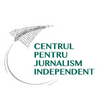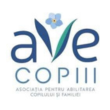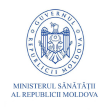Organizații vizate:
Anunțuri de Angajare
- Detalii
- Categorie: Angajări
Comunitatea Mea Program Vacancies - Extended Deadline: National consultant for conducting a comparative regionalization study
Informațiile prezentate în articolul de mai jos pot să nu mai fie actuale sau să nu mai reflecte activitățile și programele curente. Anunțul este păstrat în arhivă pentru a asigura transparența și accesul public la informațiile despre inițiativele și proiectele implementate anterior.
Scope of Work (SoW): Consultancy services – Comparative regionalization study
|
Status |
Consultancy services |
|
Position title |
1 national consultant |
|
Reports to |
Policy and Research Manager |
|
Location |
Chisinau, Republic of Moldova |
|
Expected duration of assignment |
6 months |
|
Application deadline |
July 1, 2024, Time 18:00 (CET) |
Project description
Comunitatea Mea (Ro) / My Community (En) is an 8-year Program funded by the United States Agency for International Development (USAID) and administered by IREX. The Program’s purpose is to improve the capacity of local public authorities, including their ability to work inclusively with citizens and civil society, to increase revenues, improve financial management practices, build stronger checks and balances between the central and local governments, and facilitate public-private partnerships and inter-municipal cooperation.
My Community Program has four interrelated objectives:
Objective 1: Improved quality and access to municipal services.
Objective 2: Citizens meaningfully engaged in local governance.
Objective 3: Decentralization policy reforms advanced.
Objective 4: Increased locally owned revenues and improved financial management practice.
Objective 3 activities include providing support to public authorities in their efforts to strengthen and rationalize the institutional and policy framework for local service delivery and democratic governance.
Context
The rayon, as an administrative-territorial unit (ATU) in Moldova, has been found deficient in several studies due to numerous dysfunctions such as an excessive number of administrative personnel in rayon councils and inefficient exercise of development, planning, and strategic foresight competencies. This inefficiency has led to a decline in public service quality, degraded infrastructure, and poor property management. Additionally, rayons struggle with implementing public innovation measures, including digital governance and performance-oriented management.
Moldova's status as an EU candidate has spurred public dialogue on enhancing administrative capacity and access to EU funds, highlighting the inability of the currently structured rayons to contribute to the investments and service and governance improvements that are required to align with EU norms and rules. In response, the Public Administration Reform Strategy (PARS) 2023-2030 is being implemented by central public authorities (CPAs) to address these issues. PARS aims to reform rayons through rationalization, optimization, and regionalization of second-level local public administration (LPA) bodies, modernizing financial systems, and digitizing public services. This includes resolving systemic dysfunctions, clarifying competences, and improving cooperation between decentralized and deconcentrated structures.
Through this call, a comprehensive comparative study is being targeted to explore optimal reform scenarios for the second tier of ATUs, aligning with EU standards and the European Charter of Local Self-Government. The study would aim to 1) describe the experience of a set of 4-5 European countries with multi-tier public administration, including comparison of how they were established, the functions assigned and accountability ecosystem within which they have functioned. Functional assignments in Moldova are in flux and in need of reform, this study is not to decide such issues for Moldova, but to explain the process and rationale for their establishment and the effects of these arrangements on effective, efficient, and equitable delivery of services across the territory involved.
There have been several proposals to reform second-level LPAs. None seem to have attracted sustained support. Meanwhile, the Ministry of Labor and Social Protection, the Ministry of Education and Research, the Ministry of Infrastructure and Regional Development and others propose various forms of regional administration, taking over functions that have been delivered at district or local level, these being centrally administered through a limited number of regional agencies - 10 or 11. The requested study is not intended to analyse these reforms in detail, but to identify examples of EU countries with different regionalization models. It is also substantial for the study to show how each model unfolds in the EU context and how regionalization influences the delivery of EU funds. The study will address the area of responsibility and authority of locally elected structures. This will focus on the nature of systems for collaboration, cooperation and communication between the different levels of administration.
Position Summary
The Comunitatea Mea Program is seeking one consultant to conduct and develop an in-depth comparative study aimed at exploring and describing, recommending optimal scenarios for the administrative-territorial reorganization that would inform policymakers in Moldova about the implications of diverse options that have been attempted in other countries. The objective is to enhance local and regional development, optimize or eliminate second-level public administration and governance (PAG), and promote the integration of public administration within the European Administrative Space (EAS) by adhering to its principles and standards. The national consultant will be guided by an international consultant.
The consultant will undertake the following responsibilities:
I. Research design and implementation.
This role involves conducting consultations with the Comunitatea Mea Program, the State Chancellery, and other pertinent stakeholders to establish the fundamental structural aspects of the in-depth comparative study. The consultant will formulate a comprehensive research framework, conduct a desk review of legal, operational, and policy documents, and perform a thorough literature review of relevant international research publications.
II. Drafting and finalizing the comparative study.
In this capacity, the consultant will develop and submit a draft of the in-depth comparative study to the Comunitatea Mea Program, incorporating pertinent feedback. Subsequently, the consultant will develop and submit the final in-depth comparative study, encompassing evaluations and recommendations for the most feasible regionalization model. The consultant should also identify the types of analysis of its own issues, needs and capabilities that Moldova should undertake to inform itself of the implications of any ideas for regionalization in Moldova.
III. Dissemination and knowledge-sharing.
The consultant will facilitate dissemination activities aimed at sharing the findings and insights garnered from the comparative study with relevant stakeholders and the broader community, and the kinds of choices Moldova needs to consider and the kinds of analyses and discussions that would ideally be conducted. Thus, this work will facilitate learning across the spectrum of policy actors and point the way for more evidence-based policy development in Moldova, as envisioned by part two of the Public Administration Reform Strategy.
Duties and responsibilities
I. Comparative study development-related duties and responsibilities
- Conduct consultations with the Comunitatea Mea Program, the State Chancellery, and other relevant stakeholders to determine the essential structural aspects of the comparative study.
- Design 1 (one) comprehensive research framework.
- Conduct a brief desk review of the legal, operational, and policy documents related to administrative-territorial reforms and regionalization efforts previously undertaken in the Republic of Moldova.
- Conduct a literature review of relevant international research publications, particularly case studies, on successful and unsuccessful models of administrative regionalization from countries with similar contexts.
- Develop and submit 1 (one) draft of an in-depth comparative study to the Comunitatea Mea Program, incorporating the relevant feedback.
- Develop and submit 1 (one) final in-depth comparative study to the Comunitatea Mea
- With CM developed materials to use to share the lessons learned from elsewhere and the implications for Moldova’s choices, as well as the priority areas of analyses required as Moldova designs its pawn answer to the administration issue faced by many other countries. Facilitate dissemination and knowledge-sharing activities.
Deliverables, timeline, and level of effort
The expected level of effort (LOE) for this assignment will be 33 (thirty-three) non-consecutive days. The assignment will take place between July - December 2024 and will include:
|
Tasks |
Deliverable |
Timeline |
Level of Effort |
|
|
I. Comparative study development and dissemination-related duties and responsibilities |
||||
|
Conduct consultations with the Comunitatea Mea Program, the State Chancellery, and other relevant stakeholders to determine the essential structural aspects of the comparative study. |
Develop (1 document) detailed outline, including (1) research methodology to ensure a thorough exploration of administrative regionalization scenarios; (2) research engagement plan to ensure a nuanced understanding of regionalization challenges from government officials, local authorities, civil society organizations, and academia. |
July-August |
2 days |
|
|
Design 1 (one) comprehensive research framework. |
July-August |
4 days |
||
|
Conduct a desk review of the legal, operational, and policy documents related to administrative-territorial reforms and regionalization efforts previously undertaken in the Republic of Moldova. |
Interim Research Report (1 document), including mandatory: (1) Outlining the research methodology, including mandatory: (a) research progress and (b) methodology adjustments; (2) Presenting the initial findings from the desk and literature review, including mandatory: (a) relevant quantitative metrics and qualitative insights; (3) Providing a preliminary assessment of the potential applicability of different models, including mandatory: (a) brief case studies and references to international models; (4) Highlighting key insights from stakeholder feedback; (5) Listing risks and issues identified during the initial phases of the research. |
July-August |
4 days |
|
|
Conduct a literature review of relevant international research publications, particularly case studies, on successful models of administrative regionalization from countries with similar contexts to the Republic of Moldova. |
July-August |
4 days |
||
|
Develop and submit 1 (one) draft of an in-depth comparative study to the Comunitatea Mea Program, incorporating the relevant feedback. |
(III) Comparative study (1 document), following the structure mentioned below regarding the final version of the document. Identify key countries or regions for comparison, considering factors such as historical background, governance structures, decentralization policies, and socio-economic indicators, to provide valuable insights. |
August - September |
10 days |
|
|
Develop and submit 1 (one) final in-depth comparative study detailing evaluations and recommendations for the most viable administrative regionalization model, outlining final recommendations, preliminary implementation scenarios, and areas requiring further research, covering legal, policy, capacity reform, monitoring, risk management, and model adaptability. |
(IV) Comparative study (1 document), including mandatory: (1) Feedback from relevant stakeholders; (2) Detailing the analysis of each model and identifying the most viable model, including mandatory: (a) Case studies, best practices, and lessons learned from key countries or regions for comparison, (b) A cost-benefit analysis of potential models, (c) Alignment with European integration challenges, with the Public Administration Reform Strategy (PARS) 2023-2030, and with the Administrative-Territorial Reform (ATR), (d) Lessons learned from the voluntary amalgamation process; (3) Presenting final recommendations and preliminary implementation scenarios, including mandatory: (a) Analysis of the legal, policy, and capacity areas for reform, (b) Monitoring and evaluation suggestions for the proposed models and recommended model implementation, (c) Capacity development suggestions for the proposed models and recommended model implementation, (d) Risk assessment and mitigation suggestions for models implementation, (e) Scalability and adaptability suggestions for models implementation; (4) Discuss areas where additional research or data collection is required for optimal implementation of administrative regionalization scenarios. |
October |
5 days |
|
|
Develop policy recommendations. |
Generate evidence-based policy recommendations, addressing issues, not limited to: (a) decentralization challenges, (b) administrative capacity building opportunities, (c) intergovernmental relations policies, and (d) citizen participation to support informed decision-making and implementation. |
October |
1 days |
|
|
Facilitate dissemination and knowledge-sharing activities. |
Facilitate dissemination and knowledge-sharing activities through various channels to foster dialogue, raise awareness, and promote evidence-based policymaking in decentralization reforms. |
November |
3 days |
|
|
TOTAL |
33 days |
|||
Please note that the deliverables may be amended based on the outcomes of the consultation.
Skills and experience
Education
- A master’s degree in public administration, public policies, or a related field is required. Advanced degrees in these or related fields will be considered an asset.
Preferred professional experience and skills
- Extensive experience (min. 5 years) in designing and implementing research projects.
- Extensive experience (min. 5 years) in conducting research in regional development.
- Proven track record of relevant* research published in peer-reviewed papers.
*Topics related to regionalization, decentralization, or public administration reforms.
Language proficiency
- Advanced proficiency level (C1 level in CEFR) in Romanian and Russian languages.
- Intermediate proficiency level (B2 level in CEFR) in the English language.
Software proficiency
- Advanced proficiency in Microsoft Office Suite (such as Office and PowerPoint).
- Intermediate proficiency in data collection and analysis tools (such as Google Forms).
- Basic proficiency in virtual collaboration and conferencing tools (such as Zoom).
Proficiency in research software and data analysis tools will be considered an asset.
Preferred professional experience and skills
- Knowledge of local and regional governance processes in the Republic of Moldova.
- Experience conducting relevant comparative research in Eastern Europe.
- Strong skills in public policy development and analysis.
- Excellent skills in communication, knowledge-sharing, and stakeholder engagement.
- Experience working with international organizations and proven project management skills.
Personal qualities
- Professionalism, responsibility, and integrity.
- Organizational, time management, and collaborative skills.
- Flexibility, adaptability, and continuous learning.
Research proposal: Candidates are required to develop a research proposal, using the structure bellow:
- Overview of the current state of regionalization in the Republic of Moldova (200 words).
- Description of the research methodologies, incl. desk and literature (250 words).
- Structured content outline of the research (max. 1 page).
- Synopsis of the proposed approaches:
- Approach to conducting a comparative analysis of regionalization reform (250 words).
- Approach to formulating optimal scenarios reorganization (200 words).
- Outline of the strategy for engaging with pertinent stakeholders (max. 150 words).
- Structured outline of the mitigation strategies for potential risks and challenges (max. 150 words).
- Brief work plan and timeline containing activities and expected deliverables (max. 1 page).
Conflict of interest
- Trainers shall be independent contractors with no conflict of interest with the implementing partners or beneficiary public institutions.
Security clearance
- Candidates accepting employment offers will undergo anti-terrorism database clearances and employment verification processes conducted by IREX.
Evaluation criteria
|
1. |
Extensive experience (min. 5 years) in designing and implementing research projects. |
Max. 20 points |
|
2. |
Extensive experience (min. 3 years) in conducting research in regional development. |
Max. 20 points |
|
3. |
Proven track record of relevant research published in peer-reviewed journals. |
Max. 10 points |
|
4. |
Research proposal. |
Max. 30 points |
|
5. |
Preferred professional experience and skills; Personal qualities. |
Max. 10 points |
|
6. |
Language and software proficiency. |
Max. 10 points |
Evaluation criteria
Evaluation will be based on a comprehensive scoring method that incorporates the Research proposal’s quality and the Proposed consultancy rate.
The scoring distribution is as follows:
- Research Proposal Score: min. 60%
- Consultancy Rate Score: min. 40%
Research Proposal Score: Proposals should demonstrate a thorough understanding of the subject matter and present a well-structured document.
Consultancy Rate Score: Key aspects of this criterion include the reasonableness and appropriateness of cost, which means that the proposed rates should offer value for money while being competitive and justifiable. Candidates are encouraged to justify their proposed rates in their application.
To ensure a high standard of quality, candidates must achieve a minimum threshold of 70 points out of 100 in the research proposal evaluation to be considered substantially compliant.
Organizational setting: The consultant will work under the overall guidance of My Community Program Chief of Party and direct supervision of the Policy and Research Manager.
Inputs: My Community Program staff will give the consultant the necessary information and materials for fulfilling their responsibilities.
Reporting: The consultant will submit bi-weekly reports (in the English language) during the entire duration of the assignment.
Confidentiality: Materials provided to the consultant and all proceeding with the consultancy contract shall be regarded as confidential, both during and after the consultancy. Violation of confidentiality requirements may result in immediate termination of the contract.
Specific restrictions: The use of certain telecommunications and video surveillance services or equipment is strictly prohibited.
Interested candidates are invited to submit their resumes, indicating their consultancy rate, to the email address: hr-md@irex.org. Please specify Consultancy services/Regionalization study in the subject line of your message. Applications, including all supporting documents, particularly the Research proposal, must be submitted either in Romanian or English.
The deadline for application submissions is July 1, 2024; Time 18:00 (CET).
Applicants will be selected for an interview on a rolling basis.
IREX will only respond to those applicants selected for an interview.
IREX is committed to a diverse and inclusive workplace and inclusive hiring practice.
IREX is an equal-opportunity employer.
2025 CIVIC DIGITAL SOLUTIONS
Email: support@portal.civic.md











